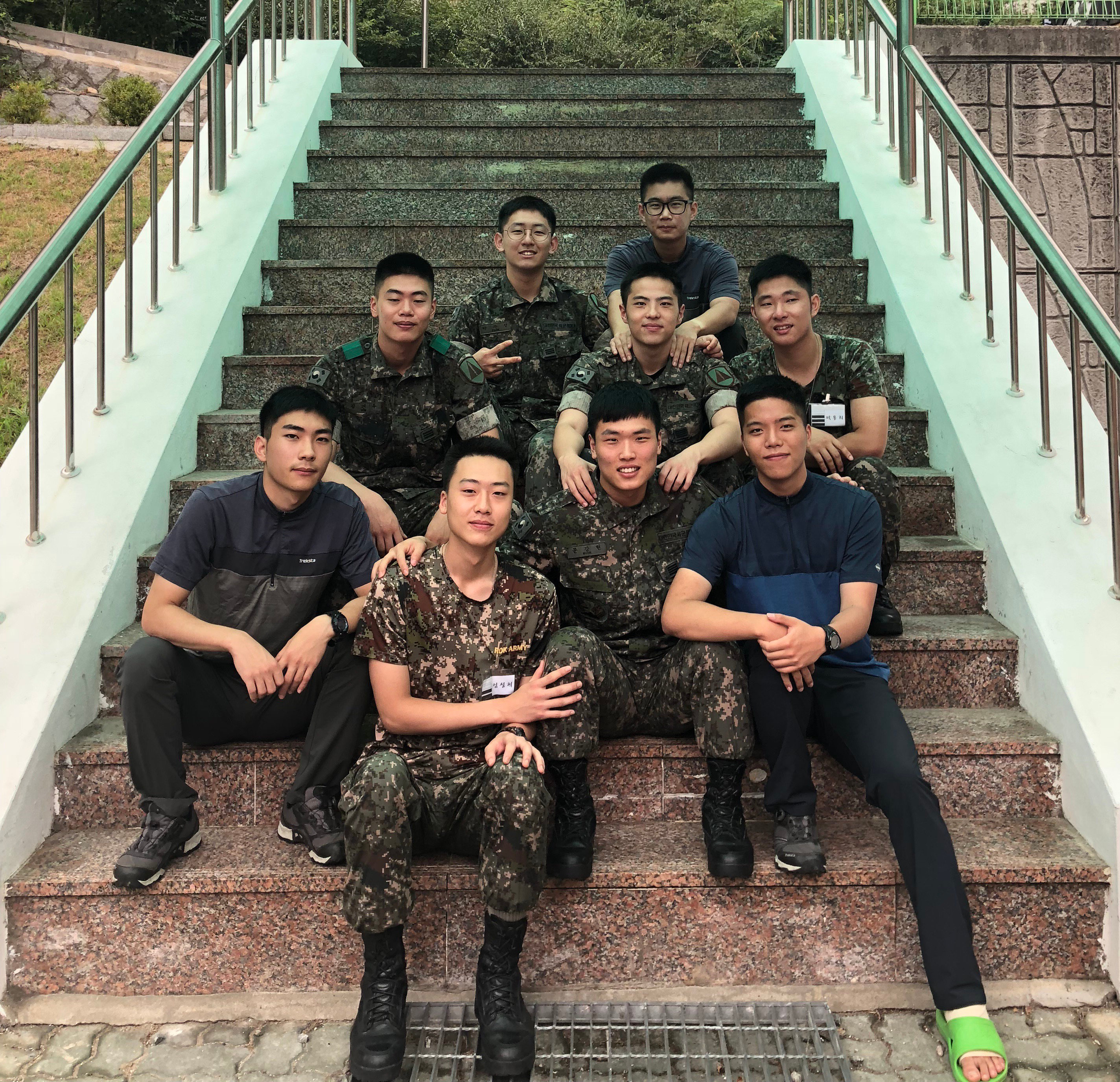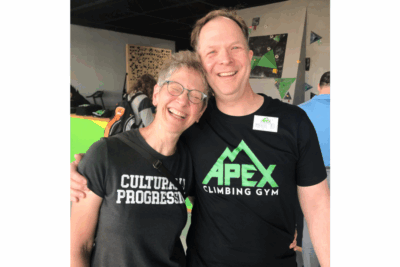After 21 months of service in the South Korean Military, Chris Moon is back at Goshen College for his senior year.
Moon first came to Goshen in the fall of 2013. He was born in Seoul, South Korea, but at the age of 11 moved with his family to Vancouver and attended middle school and high school in Canada.It was there that he first learned of Goshen College.
Moon had an interest in attending college in the US, but didn’t seriously consider it a possibility until a close family friend and GC student, Dona Park, told him about the college. Moon knew that he wanted to study accounting, ideally at a small school. Goshen fit the bill.
“I remember being so eager,” Moon said, “eager about everything, making friends, working towards a career in accounting, getting involved.”
In the midst of his excitement, Moon knew that his path would look different than that of his peers: Before graduation he would return to South Korea to fulfill his mandatory 21 months of military service.
Every man in South Korea is required to join the military at some point before the age of 29. Moon knew that he wanted to graduate college having already fulfilled this duty to his country, to simplify his eventual transition from college into the U.S. workforce. Originally, he planned to leave Goshen after his first year.
He soon reconsidered. In his first semester at GC, Moon made connections with peers and professors that he “couldn’t imagine abandoning after just one year,” he said.
Moon decided to postpone his military service term in South Korea and lean into life in Goshen.
Moon was an active member of the campus community during his first three years at GC. As a sophomore, he was resident assistant of Yoder 2, and gave campus tours with the admissions team to promote the college. Moon also served as leader of the International Student Club (ISC) during his second and third years.
Moon said his role in ISC was the most rewarding. ISC was a manifestation of what he loved most about Goshen: its small size, tight knit community and global reach. “I was able to bring people together through ISC,” Moon said, “students who felt marginalized had a space to talk about issues that mattered to them.”
Some of those conversations proved incredibly impactful.
During his time in Goshen, Moon’s view of war began to align well with the college’s pacifist stance. “I have always been firmly anti-war,” Moon said, “but my classes and conversations with friends broadened my understanding of the military.”
At GC, Moon became aware of institutions of war that contribute to violence, even indirectly. “I believe that the South Korean military exists to defend, not to cause war,” Moon said, “but while I was at Goshen, I started to think more critically about its role in violence.”
Even so, Moon didn’t consider objecting to his military term, and doesn’t feel that his service was a compromise in his values.
“We [South Korean men] grew up knowing that military service is mandatory,” Moon said. “We weren’t talked to about the importance of the military in a nationalistic sense; we just saw it as a requirement like anything else.”
“What’s important for people to know is that the culture in South Korea is different than in America,” Moon said. Joining the military in South Korea is not an act of patriotism as it is in the states; it’s simply something that must be done.
Leaving Goshen for military service in Seoul was inevitable, but that didn’t make it easy.
“No part of me wanted to move,” he said, “but I knew my friendships would remain after I returned from my service, and a potential career in the US was more important to me than a final year with my friends.”
Despite the efforts of his peers to get him to stay, at the end of his Junior year, Moon left for South Korea.
The military was everything Moon expected it to be: “rough, strict and controlled.” Moon lived with a group of eight young men. The squad shared everything, including the shower. From 6:30 a.m. wakeup until 10 p.m. bedtime, his day was scheduled.
Moon served as an armed guard for his first two months of service and worked in an administrative position for the remainder of his time. When they weren’t working, Moon and his squad members would exercise, shower and, after 5 p.m., enjoy free time.
Internet access was limited to the free time hours, so connection with the outside world was infrequent. Sporadic emails kept him in distant contact with friends in Goshen. He was awarded a handful of days off every three to four months, and used those days to visit family in Seoul.
Just as his time at Goshen College had done, Moon’s 21 months of service added complexity to his understanding of the military.
Although his service was not an act of dedication to the military, he left with a positive view of the institution in South Korea. “I learned a lot about discipline and the value of structure,” Moon said, “I also have a lot more respect for people who can work in the military for long periods of time.”
Ultimately, Moon still strives for a “utopia in which war is not present,” a mindset that feels comfortable at a pacifist institution.
When he returned to Goshen this fall it felt eerily familiar. “The campus was beautiful,” he said. “Everything looked the same as it had when I left. It felt like I had only spent a summer away.”
But the reality of his time away began to sink in as he rode his bike around campus and didn’t recognize a single face.
Moon said he is glad to be back on campus, but his intentions are different now. With an already established base of friends in the States, his main goal is graduating from Goshen and maintaining the relationships with professors and peers that he developed during his first three years.
In a few months, Moon will be doing a different kind of marching order. Wearing robes rather than camouflage, he will walk through an applause tunnel, with dozens of faculty members clapping, on commencement day, April 26.



